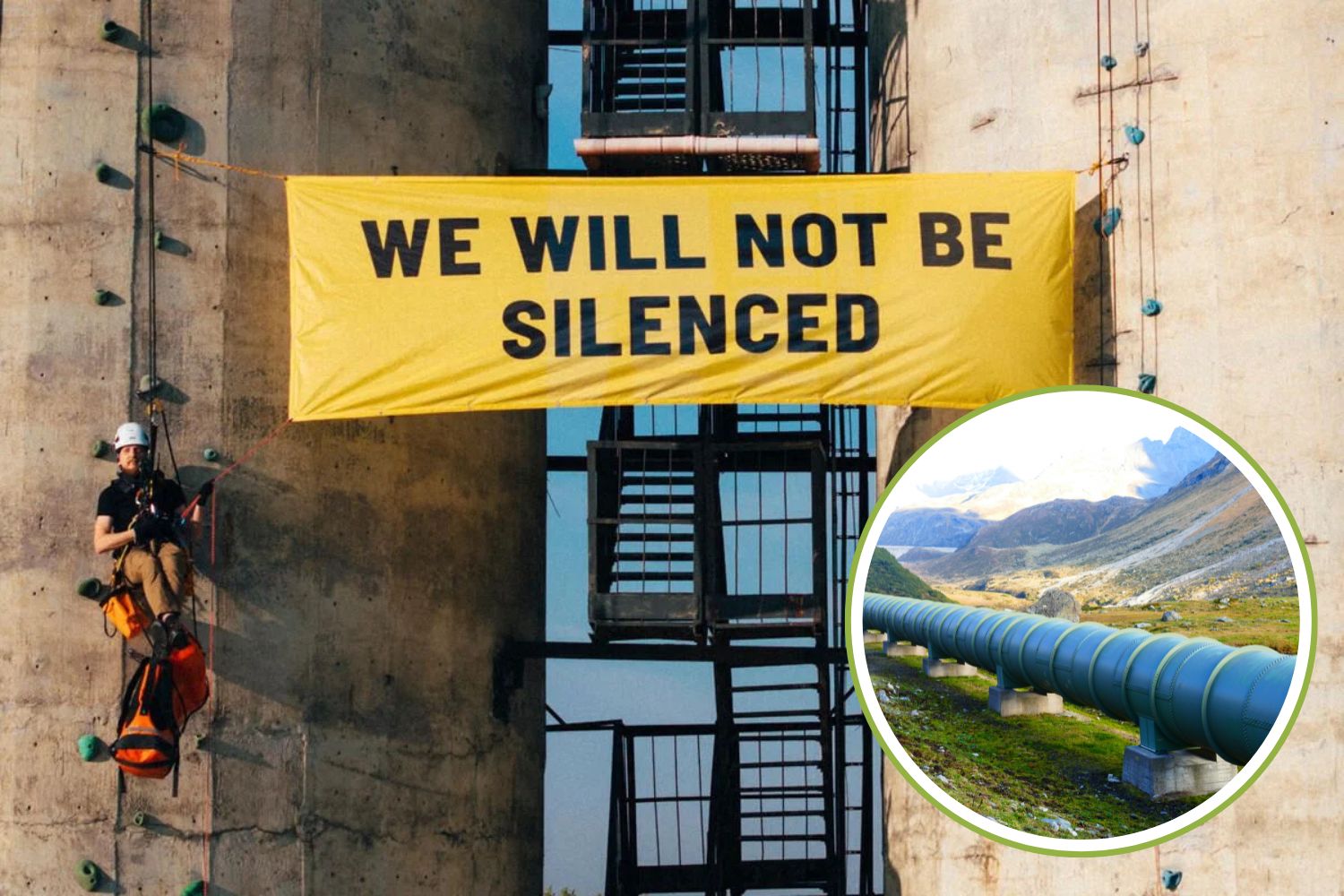Jury rules that Greenpeace USA and Greenpeace International are liable for more than $660 million. The nonprofit will appeal the decision, saying lawsuits like this one aim to “destroy the right to peaceful protest”

Over $660 million for defending the environment and the rights of the Standing Rock Sioux against the Dakota Access Pipeline’s expansion efforts. This battle has been ongoing for decades, with numerous organizations, activists, and even Leonardo DiCaprio taking a stand, alongside Norway’s strong opposition.
However, despite the efforts of the Sioux and their supporters to protect their ancestral lands, the environment, and human rights, a North Dakota jury’s recent decision casts a heavy shadow. The jury ruled that the environmental group Greenpeace must pay hundreds of millions of dollars to Energy Transfer, the pipeline company, for defamation—effectively pushing the company toward bankruptcy.
A nine-member jury in Morton County issued the verdict on the lawsuit filed by Energy Transfer (ET, a U.S.-based company that constructs pipelines for transporting fossil fuels) against Greenpeace USA (Greenpeace Inc. and Greenpeace Fund) and Greenpeace International, holding them liable for over $660 million.
According to Greenpeace, this verdict will encourage fossil fuel multinational corporations to act with even greater arrogance, aiming to silence free speech and prevent peaceful protests.
“We are witnessing the dangerous return of the same behaviors that fueled the climate crisis, worsened social and environmental inequalities, and prioritized fossil fuel profits over public health and a livable planet,” said Mads Christensen, executive director of Greenpeace International. “The previous Trump administration spent four years dismantling air and water protection policies and indigenous sovereignty. Now, together with its allies, it wants to finish the job by silencing any form of peaceful protest. We will not back down. We will not be silenced.”
The SLAPP lawsuits
“SLAPP” – which sounds like “slap” – stands for “Strategic Lawsuit Against Public Participation” and refers to legal actions intended to block or intimidate activists, environmentalists, or journalists from participating in public discourse.
Energy Transfer’s legal actions are textbook examples of SLAPPs—intimidating lawsuits designed to silence activists and nonprofit organizations dedicated to environmental defense. The lawsuits involve heavy legal costs aimed at driving these groups to financial ruin and, ultimately, silencing dissent.
Large oil companies such as Shell, TotalEnergies, and ENI have launched SLAPPs against various Greenpeace organizations in recent years. Some of these cases were successfully stopped. For example, in 2024, Greenpeace France won a SLAPP case brought by TotalEnergies, while Greenpeace UK and Greenpeace International forced Shell to drop its baseless lawsuit.
In response to Energy Transfer’s SLAPP in the U.S., in February 2024, Greenpeace International (GPI) initiated the first test of the European Union’s anti-SLAPP Directive. GPI filed a lawsuit in the Netherlands against the U.S. company, seeking to recover damages from Energy Transfer’s baseless and repeated lawsuits.
“Energy Transfer has not written the final word on us in this battle; we’ve just started our anti-SLAPP legal action against its attacks on free speech and peaceful protests. We will bring Energy Transfer to court in the Netherlands in July. We will not stop,” said Kristin Casper, General Counsel for Greenpeace International.
